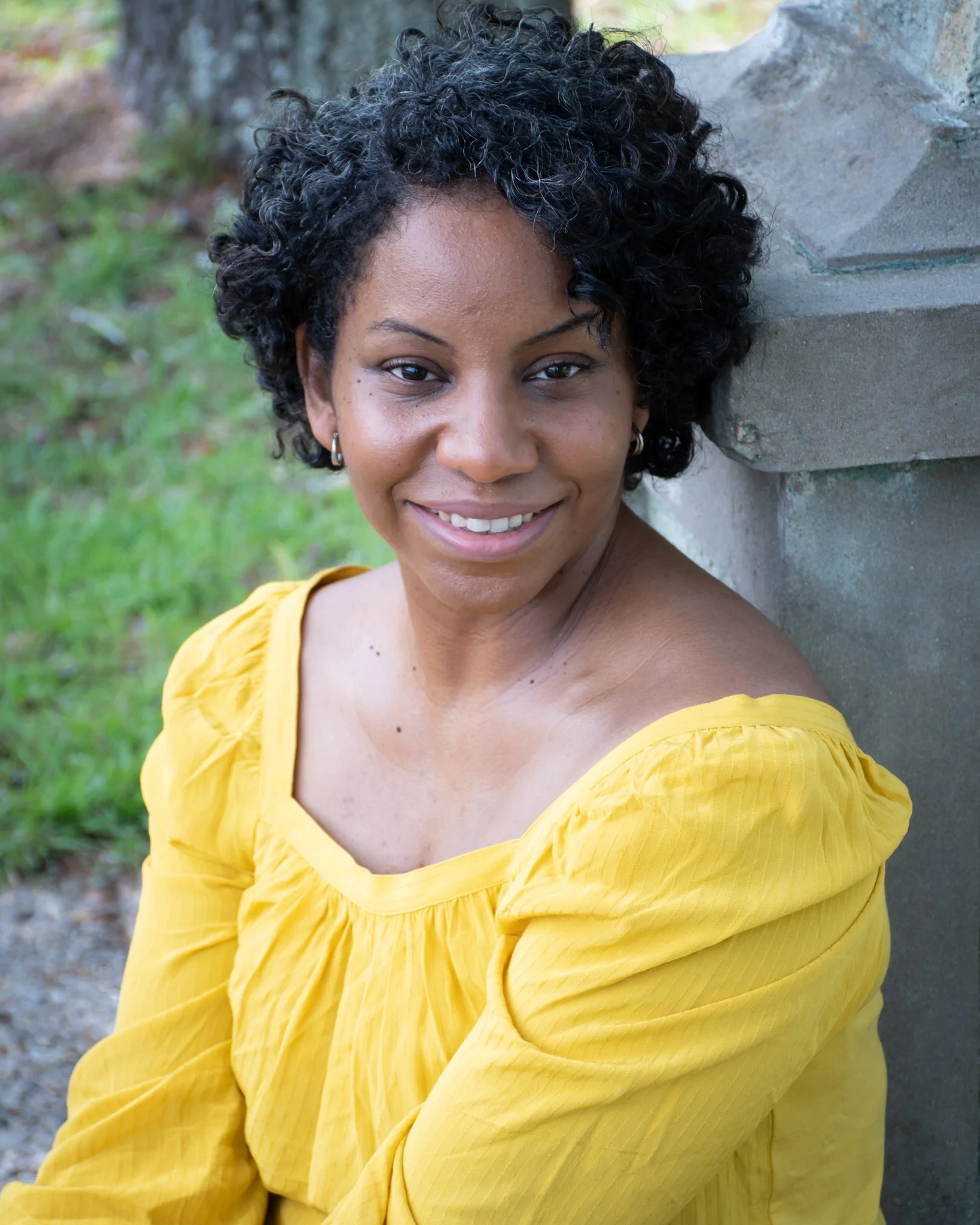Clinnesha D. Sibley
Clinnesha D. Sibley is a literary artist, educator, and community leader with degrees from Tougaloo College (B.A.) and the University of Arkansas (M.F.A.). A writer of plays, poetry, essays, and prose/fiction, Clinnesha has received numerous awards including the Holland New Voices Award, the Arkansas Arts Council Individual Artist Fellowship, and the Mississippi Theatre Association Playwriting Award. Her writing has also appeared in national literary journals, as well as various publications and anthologies. She is also on the Mississippi Humanities Council Speaker's Bureau. Clinnesha was selected as one of twenty-four change-makers across the United States for the 2017-2018 National Arts Strategies Creative Communities Fellow Program. This program was her springboard into the non-profit sector and social entrepreneurship. A 2019 recipient of a “Rise Grant” from Women on the Rise Network and a 2020 recipient of the Arts Institute of Mississippi (AIM) Award, Clinnesha is the literary arts instructor at Mississippi School of the Arts. She is married to her high school sweetheart, Keith Sibley, and they have three children: Kaylee Olivia, Karlee Denise, and Keith Jr.
He Needed His Momma
I was in conversation with someone before I got pregnant with my son, and they were talking to me about their fear of becoming the parent of a black child.
“You’re not afraid of raising black children? A black boy?” They asked sincerely.
I reverently, and I mean reverently replied: “No!”
You see, I truly believed that I was favored. That I was not called to fear for the lives of my children, for the life of my son.
A month or so after that conversation, I got pregnant. I was so pleasantly surprised to learn we were having a boy. And not once did I worry for his safety in the world. I carried him in my womb like the prince I knew he was.
My son is a prince.
Today, I’m not so sure what makes me, his queen-mother, so hallowed. I’m not sure what distinguishes my precious son’s life. I pray for him. I believe he will amaze me with his gifts.
But what makes my son different in the eyes of white supremacists? What’s keeping me and his father from the ultimate nightmare… favor?
I used to think the phenomenon was that black women were forever shouldering burdens and the thought that I could just release myself from that (and call it self-care or freedom) now feels romanticized, naive, and privileged.
It turns out, black women aren’t only the mules of the world as Zora Neale Hurston put it, we are accompanists in our sons’ death arias.
In George Floyd’s final moment of life, “Momma” escapes from his voice box. Not once, but twice, he shudders… “Momma!”
Did he see her?
Was she clothed in white, beckoning to him?
Was she admonishing him?
Somehow rescuing him?
Was this how he cried to her as a boy when he was having a bad dream? When he was in danger and needed to be saved?
A black man will always desire his mother, especially when his back is against the wall… or, in this case, when a volatile knee has him pinned to the ground…
A black man is going to call on his Momma, and she is going to show up. In person or in spirit, she will be there.
George Floyd’s mother is deceased, yet it was her that he continued to depend on when under duress.
It all reifies historical images of Mamie Till Mobely, breaking down as she hovered over her son, Emmett’s, open casket.
Coretta Scott King weeping behind a black veil, cradling five-year-old Bernice in Ebeneezer Baptist Church.
Lesley McFadden, Gwen Carr, Wanda Johnson, Sybrina Fulton…
...and all the black mothers whose incredible strength could not bring back black men they beloved and begot.
This is the legendary strength black women are equipped with– a strength that the unfavored will have to tap into before the entire nation as we petition for justice on behalf of our princes and kings. Because if it comes down to it, justice will become a black woman’s sole responsibility until she dies.
It is a black mother who will lead her entire family down the aisle at a funeral, sit on the front pew, hover over a casket, usher her child into otherness, and then go stand before the press to demand justice.
This is why black women can’t be anything other than strong… because the ones you are killing are ours…
They are ours…
